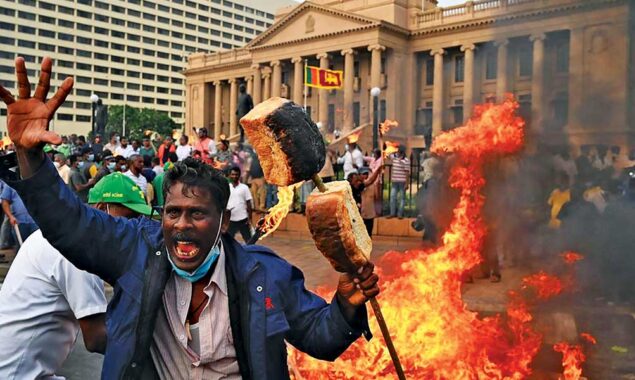Sri Lankan police arrests ruling party MPs over mob violence
COLOMBO: Sri Lankan police detained two ruling party MPs on Wednesday for...

As the island nation confronts a terrible economic crisis, Sri Lanka’s prime minister has warned of a food scarcity, promising that the government will buy enough fertiliser for the next planting season to enhance output.
President Gotabaya Rajapaksa’s decision to restrict all chemical fertilisers in April last year dramatically reduced crop output, and while the government has now lifted the ban, no significant imports have yet occurred.
“While there may not be enough time to get fertiliser for the Yala (May-August) season, preparations are being done to secure adequate stockpiles for the Maha (September-March) season,” Prime Minister Ranil Wickremesinghe said late Thursday on Twitter.
“I implore everyone to recognise the gravity of the… situation.”
On Friday, Rajapaksa appointed nine new cabinet members, including key positions in the health, trade, and tourism ministries. He did not designate a finance minister, thus Wickremesinghe is likely to keep the job.
Tourism-dependent Sri Lanka is experiencing severe currency, fuel, and pharmaceutical shortages, and economic activity has slowed to a crawl.
“It’s pointless to talk about how difficult life is,” said A.P.D. Sumanavathi, a 60-year-old lady who sells fruits and vegetables in Colombo’s Pettah market. “I can’t say what will happen in two months; at this rate, we might not even be here.”
Nearby, a lengthy line had formed in front of a business selling cooking gas cylinders, the prices of which were prohibitively expensive.
“Even though there were about 500 people, only about 200 cylinders were given,” said Mohammad Shazly, a part-time chauffeur in line for the third day in the hopes of cooking for his family of five.
“We can’t do anything without gas or kerosene oil,” he remarked. “What’s the last option?” Without nourishment, we will perish. That will absolutely happen.”
On Thursday, the governor of the central bank announced that foreign exchange had been secured through a World Bank loan and remittances to pay for fuel and cooking gas shipments, but that supplies were still being delivered.
Inflation could soar over 40% in the next months, although this is mostly due to supply-side pressures and bank and government policies.
SUPPORT FOR RELIEF FROM THE G7
As public discontent with the administration grows, police in Colombo used tear gas and water cannon to disperse hundreds of student demonstrators on Thursday. Protesters are calling for the president and prime minister to be removed from office.
The economic crisis has arisen as a result of the COVID-19 pandemic, which has harmed tourism, rising oil prices, and populist tax cuts by President Rajapaksa and his brother, Mahinda, who resigned as Prime Minister last week.
Critics accuse Wickremesinghe, who took his place as Prime Minister, of being a dupe of the brothers, which he rejects.
Other causes include significantly subsidised domestic fuel prices and the decision to prohibit the import of chemical fertilisers.
Catch all the International News, Breaking News Event and Latest News Updates on The BOL News
Download The BOL News App to get the Daily News Update & Follow us on Google News.